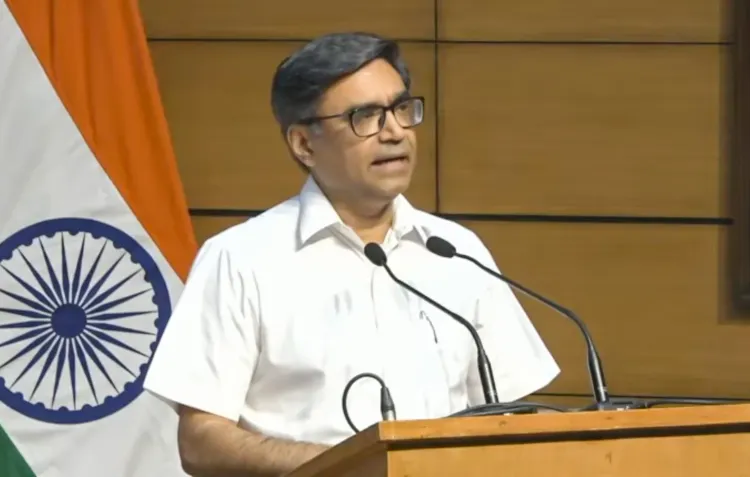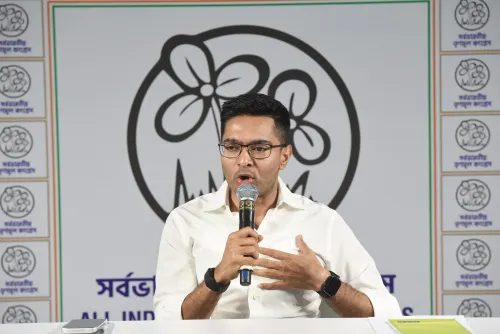Did India Justify Its Response to Terror Acts?

Synopsis
Key Takeaways
- India's military action was a response to terrorism.
- Precision strikes targeted terror camps in PoK.
- Pakistan continues to harbor known terrorists.
- The Pahalgam attacks aimed to destabilize J&K's economy.
- Diplomatic efforts preceded military action.
New Delhi, May 7 (NationPress) India has asserted its right to respond to heinous acts of terrorism originating from its neighboring country, the government announced on Wednesday, shortly after the Indian armed forces targeted and eliminated terror camps in Pakistan-occupied Kashmir (PoK).
During a press briefing, Foreign Secretary Vikram Misri, accompanied by Colonel Sophia and Wing Commander Vyomika Singh, discussed 'Operation Sindoor'. He emphasized that India's response to the attacks in Pahalgam was deliberate, measured, and aimed at avoiding escalation.
Misri stated that the objective of the Indian strikes was to dismantle and eradicate terrorist infrastructure across the border, ensuring that there was no collateral damage during these precision operations.
He characterized Pakistan as a sanctuary for terrorists, highlighting that this rogue state continues to harbor such elements despite international condemnation.
Referencing the notorious case of Sajid Mir, he noted that terrorists in Pakistan often evade justice.
“Sajid Mir was officially declared dead, but following international pressure, he was seemingly resurrected and arrested in Pakistan. This showcases Pakistan's ongoing support and nurturing of terror groups on its territory,” he remarked.
Misri further indicated that the Pahalgam massacre was a calculated act by elements based in Pakistan, aimed at undermining the burgeoning economy of Jammu and Kashmir.
“J&K welcomed over 23 million tourists last year. Threatened by the potential loss of influence and the rise of tourism over separatism, they orchestrated this heinous attack in the Valley,” he explained.
He expressed that the Pahalgam terror incidents incited profound outrage among residents, both locally and nationally.
“The Indian government initially pursued diplomatic avenues to address the situation with Pakistan and today, as we all know, responded with targeted strikes to eliminate terror hubs within their territory,” he concluded.









